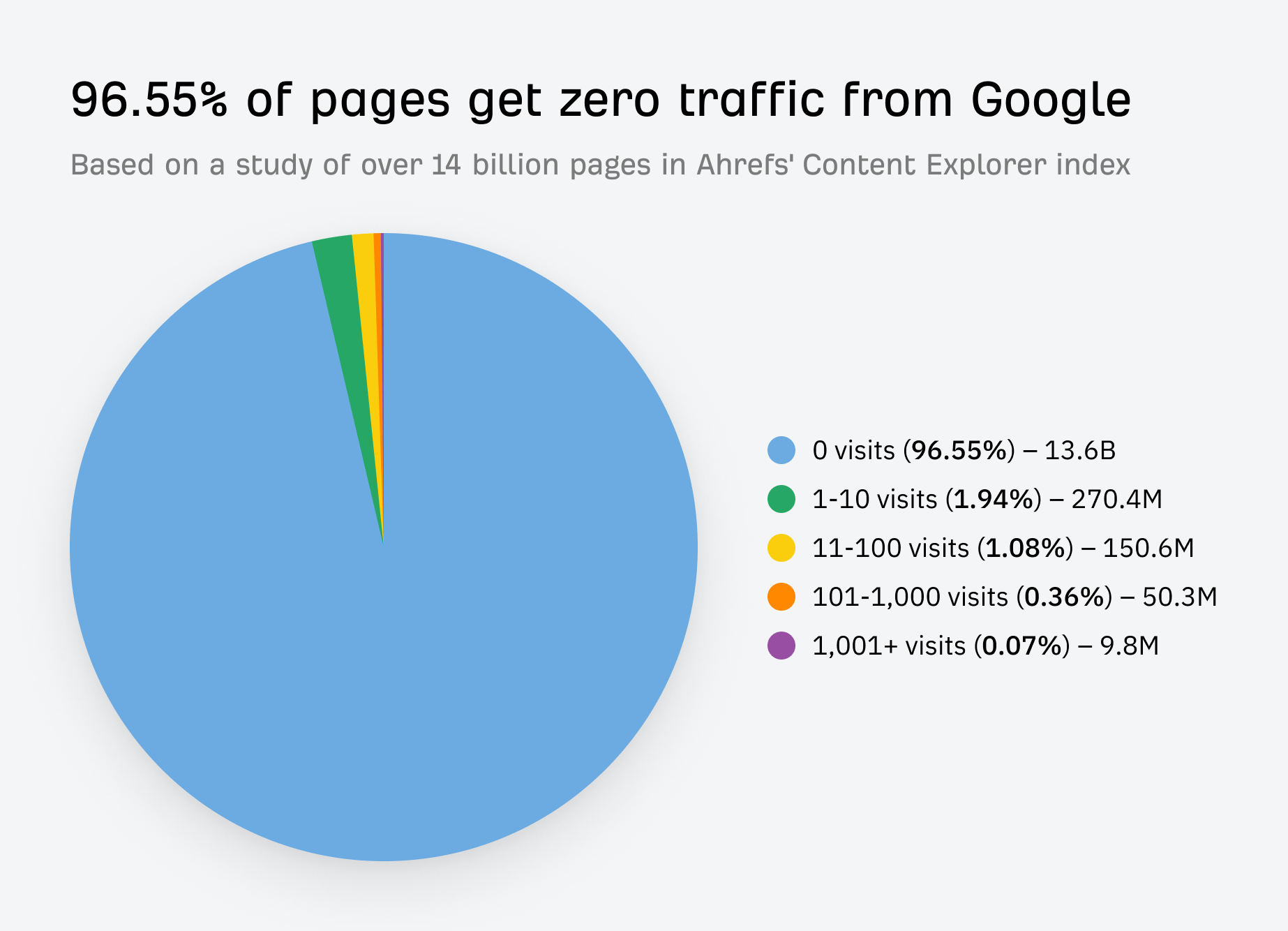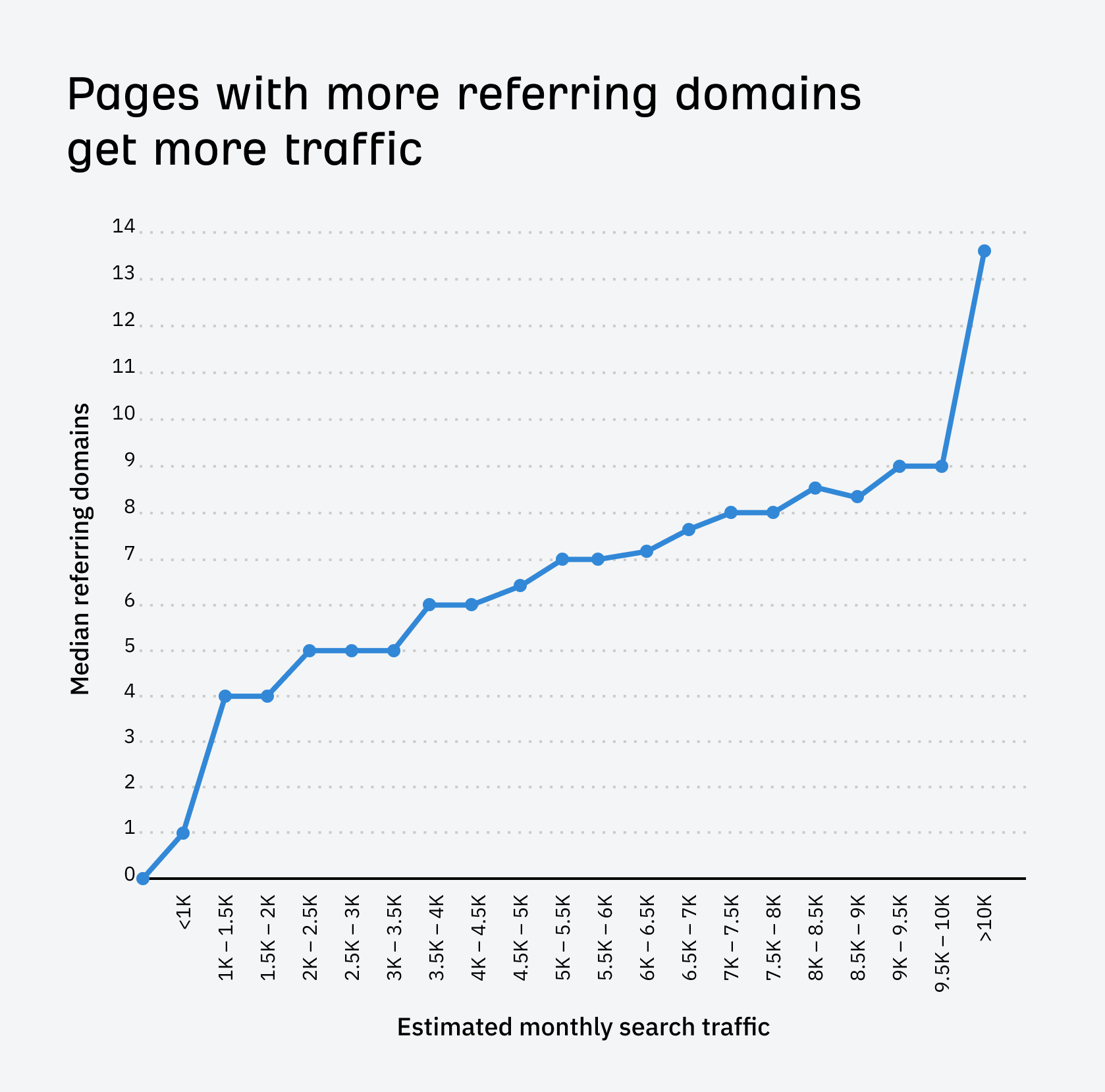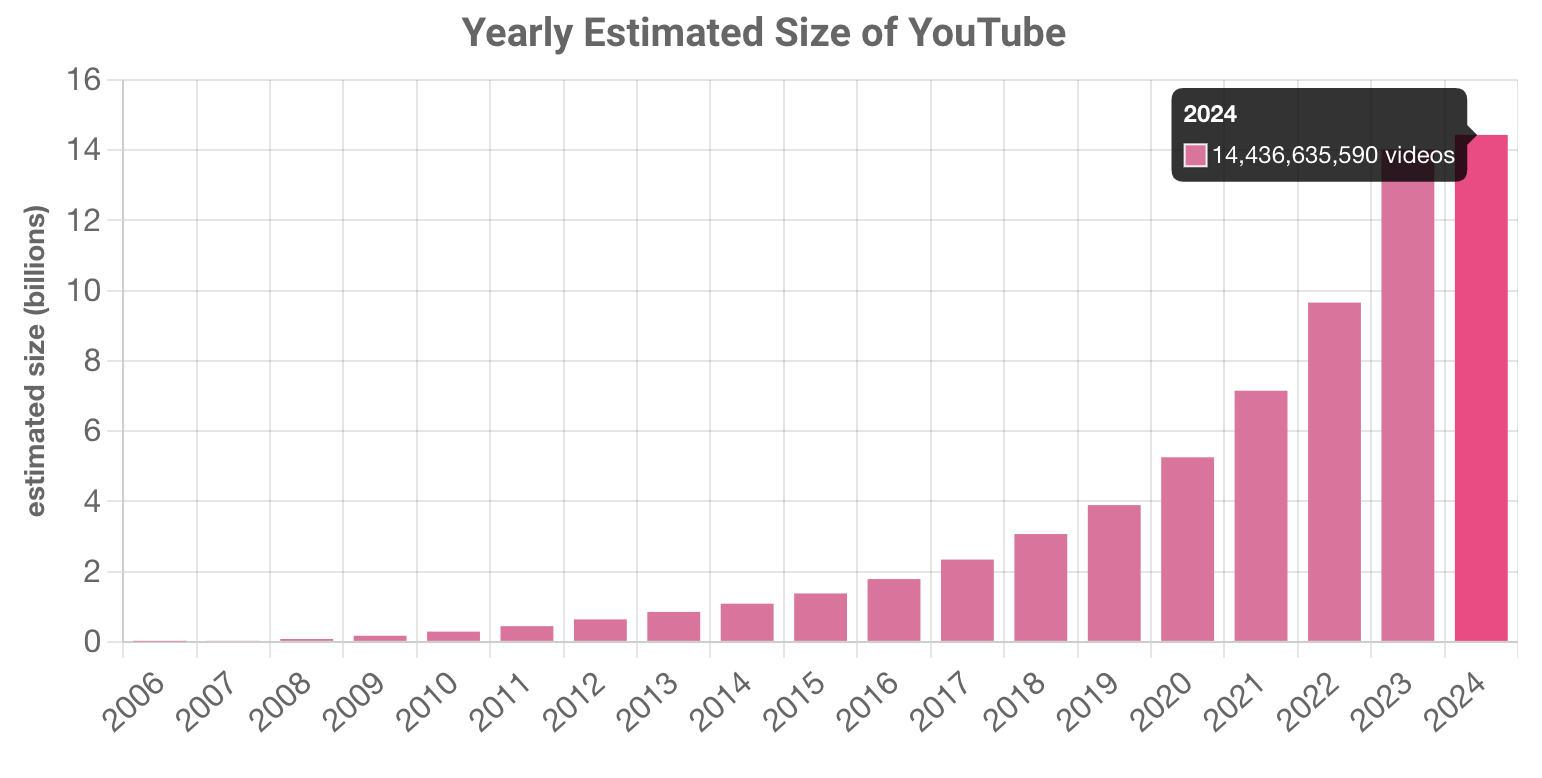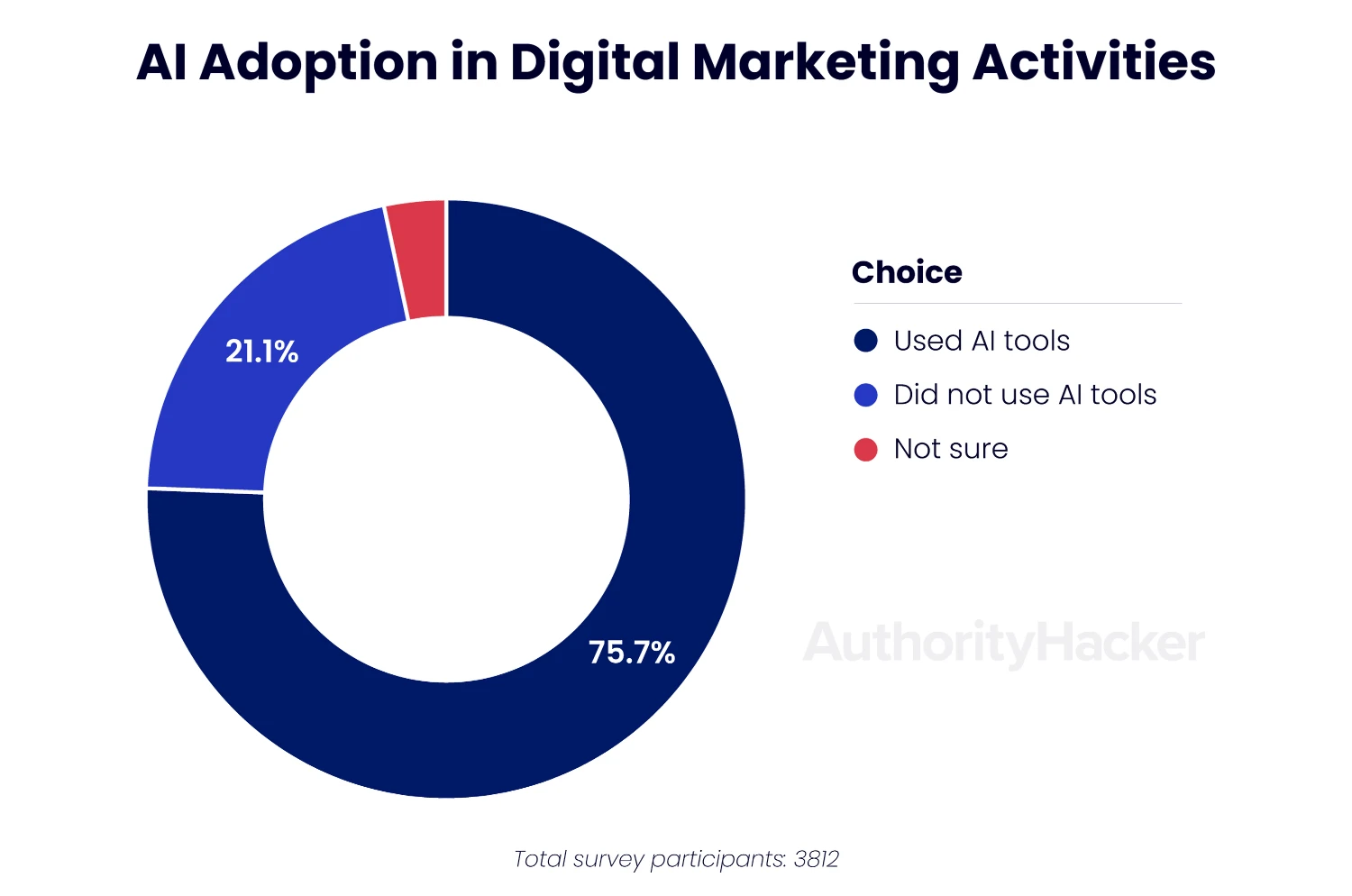We’ve curated, vetted, and categorized a list of up-to-date stats below.
These are the most interesting SEO stats we think you should know:
- 68% of online experiences begin with a search engine. (BrightEdge)
- 63.41% of all US web traffic referrals come from Google. (SparkToro)
- 92.96% of global traffic comes from Google Search, Google Images, and Google Maps. (SparkToro)
- SEO drives 1,000%+ more traffic than organic social media. (BrightEdge)
- 60% of marketers say that inbound (SEO, blog content, etc.) is their highest quality source of leads. (HubSpot)
- SEO leads have a 14.6% close rate. (HubSpot)
As SEOs, it’s important to understand where search engines are and where they’re going.
- Google is the most used search engine in the world, with a mobile market share of 95.32% and a desktop market share of 81.95%. (Statista)
- Google maintains a web index of ~400 billion documents. (Zyppy)
- There are an estimated 3.5 billion searches on Google each day. (Internet Live Stats)
- 61.5% of desktop searches and 34.4% of mobile searches result in no-clicks. (SparkToro)
- 15% of all Google searches have never been searched before. (Google)
- The average top-ranking result has a CTR of 9.28%, followed by 5.82 and 3.11% for positions two and three. (ResearchGate)
- 39% of purchasers are influenced by a relevant search. (Think With Google)
- The most searched keyword in the U.S. and globally is “Youtube”. (Ahrefs)
These stats about ranking on Google may surprise you.

- 96.55% of all pages get zero search traffic from Google. (Ahrefs)
- Only 1.94% of all pages get between one and ten monthly search visits from Google. (Ahrefs)
- The top-ranking page gets the most search traffic only 49% of the time. (Ahrefs)
- Only 5.7% of pages will rank in the top 10 search results within a year of publication. (Ahrefs)
- The average page in the top 10 is 2+ years old. (Ahrefs)
- 7.4% of top-ranking pages don’t have a title tag. (Ahrefs)
- Google rewrites title tags 33.4% of the time. (Ahrefs)
- Google is 33% more likely to rewrite title tags. (Ahrefs)
- When Google ignores the title tag, it uses H1 50.76% of the time instead. (Ahrefs)
- Google is 57% more likely to rewrite title tags that are too long. (Ahrefs)
- 25.02% of top-ranking pages don’t have a meta description. (Ahrefs)
- Google rewrites meta descriptions 62.78% of the time. This drops to 59.65% for fat-head and rises to 65.62% for long-tails. (Ahrefs)
- 40.61% of pages have meta descriptions that truncate. (Ahrefs)
- Google shows meta descriptions in search results only 37.22% of the time. That rises to 40.35% for fat-head keywords and drops to 34.38% for long-tails. (Ahrefs)
- The average top-ranking page also ranks in the top 10 search results for nearly 1,000 other relevant keywords. (Ahrefs)
- There’s no correlation between Flesch Reading Ease scores and ranking positions. (Ahrefs)
- 89.1% of link builders say nofollow links have an impact on rankings. (Authority Hacker)
- It takes an average of 3.1 months to see the impact of a link on search ranking. (Authority Hacker)
- 50-65% of all number one spots are dominated by featured snippets. (Authority Hacker)
Google says that backlinks are one of its top three ranking factors. Check out these link-related stats.

- There’s a positive correlation between the number of websites linking to a page and its search traffic. (Ahrefs)
- There’s a positive correlation between the number of websites linking to a page and its ranking position. (Ahrefs)
- Most top-ranking pages get “followed” backlinks from new websites at a pace of +5%-14.5% per month. (Ahrefs)
- 73.6% of domains have reciprocal links, meaning that some of the sites they link to also link to them. (Ahrefs)
- 43.7% of the top-ranking pages have some reciprocal links. (Ahrefs)
- 66.5% of links to sites in the last nine years are dead. (Ahrefs)
- 10.6% of all backlinks to the top 110,000 sites are nofollow. (Ahrefs)
- 0.44% of links use “rel=ugc” and 0.01% use rel=“sponsored”. (Ahrefs)
- 74.3% of link builders pay for links. (Authority Hacker)
- The average cost of a paid link is $83. (Authority Hacker)
- In-house SEOs pay 75% more for links than niche site owners. (Authority Hacker)
- Paying for links yields only an extra 2 links per month. (Authority Hacker)
- Link builders using social media build 22% more links than those who don’t. (Authority Hacker)
- URLs with a larger number of anchor text variations from internal links are highly correlated with more Google search traffic. (Zyppy)
- Pages with at least one exact match anchor had at least five times more traffic than pages without. (Zyppy)
- SEOs typically take 1-2 hours to build a single link. (Aira)
Most SEO campaigns begin with keyword research. Here are some stats about how people are searching on Google.
- 94.74% of keywords get 10 monthly searches or fewer. (Ahrefs)
- 0.0008% of keywords get more than 100,000 monthly searches. (Ahrefs)
- 91.45% of search volumes in Google Ads Keyword Planner are overestimates. (Ahrefs)
- Google Ads Keyword Planner overestimates search volumes 54.28% of the time and is roughly accurate 45.22% of the time. (Ahrefs)
- 46.08% of clicks in Google Search Console go to hidden terms. (Ahrefs)
How much do SEO professionals charge for their services? How much do in-house SEOs earn? Check out these stats.
- 78.2% of SEOs charge monthly retainers for some or all of their services. (Ahrefs)
- 54.5% of SEOs only offer one pricing model (i.e., hourly, retainer, or per-project). (Ahrefs)
- $501-$1,000 is the most popular monthly retainer. (Ahrefs)
- $75-$100 is the most popular hourly rate. (Ahrefs)
- $2,501-$5,000 is the most popular per-project rate. (Ahrefs)
- Fewer than 1 in 10 SEOs (9.9%) charge more than $150/hour. (Ahrefs)
- Agencies and consultants usually charge more than freelancers. (Ahrefs)
- Local SEOs charge less than those with global clients. (Ahrefs)
- There’s a clear positive correlation between experience and rates. (Ahrefs)
- SEOs based in India, Central America, and South America charge the least. (Ahrefs)
- The median annual salary for SEOs was $49,211. (Ahrefs)
- To earn higher salaries in SEO, you need to be a technical SEO expert. Heads of SEO, SEO Directors, and SEO Leads all said that their main specialization was technical SEO. (Ahrefs)
- Self-employed SEOs earned the most on average ($60,232). The median annual salary for in-house roles was slightly lower at $56,789, and agency SEOs had the lowest median annual salary at $44,169. (Ahrefs)
- The average level of experience for SEO directors and Heads of SEO was 10.4 years and 10.6 years respectively. (Ahrefs)
If Google can’t crawl or index your website, you can’t rank. That’s how important technical SEO is. Let’s look at some stats.
- 33% of websites pass the Core Web Vitals threshold. (Ahrefs)
- Only 11.9% of pages had at least one Core Web Vitals metric, and 93% of those had all three metrics. (Ahrefs)
- Over 67% of domains using Hreflang have issues. (Ahrefs)
- 95.2% of sites have 3XX redirect issues. (Ahrefs)
- 88% of sites have HTTP to HTTPS redirect issues. (Ahrefs)
- 80.4% of sites have missing alt attributes. (Ahrefs)
- 72.3% of sites have slow pages. (Ahrefs)
- 68.5% of sites have page and SERP titles that do not match. (Ahrefs)
- 66.2% of sites have a page that has only one follow incoming internal link. (Ahrefs)
- 62.7% of sites have a page that links to redirects. (Ahrefs)
- 59.5% of sites have missing H1 tags. (Ahrefs)
- 51.3% of sites have multiple H1 tags. (Ahrefs)
If you serve customers locally, you should focus on improving your local search presence so more people can find you. These stats show the importance of good local SEO.
- 63.6% of consumers say they are likely to check reviews on Google (through Google Maps and Search) before visiting a business location. (ReviewTrackers)
- 58% of businesses don’t optimize for local search. (ReviewTrackers)
- 88% of consumers would use a business that replies to all of its reviews. (BrightLocal)
- Customers are 2.7 times more likely to consider a business reputable if they find a complete Business Profile on Google Search and Maps. (Google)
- Customers are 70% more likely to visit and 50% more likely to consider purchasing from businesses with a complete Business Profile. (Google)
- 32% of SEOs think the Google Business Profile is the most important ranking factor for the map pack. (BrightLocal)
- 36% of SEOs think on-page is the most important ranking factor for local organic search results. (BrightLocal)
- 76% of people who search on their smartphones for something nearby visit a business within a day. (Think With Google)
- 28% of searches for something nearby result in a purchase. (Think With Google)
We’ve had great success driving customers using YouTube. Are you doing it too? If not, these stats may surprise you.

- The estimated size of YouTube is 14.4 billion videos. (Tubestats)
- 91% of businesses use video as a marketing tool (Wyzowl)
- 88% of video marketers see video as an important part of their overall strategy. (Wyzowl)
- 75% of video marketers say they’ve used AI tools to help them create or edit marketing videos. (Wyzowl)
- 82% of people have been convinced to buy a product or service by watching a video. (Wyzowl)
Google has moved to mobile-first indexing, and more people are using mobile search. No doubt, mobile SEO is incredibly important.
- 58.67% of all website traffic worldwide comes from mobile phones. (Statista)
- People use Google Lens to answer 8 billion questions every month. (Google)
- 57% of local search queries are submitted using a mobile device or tablet. (ReviewTrackers)
- 51% of smartphone users have discovered a new company or product when conducting a search on their smartphones. (Think With Google)
- 54% of smartphone users search for business hours, and 53% search for directions to local stores. (Think With Google)
- 18% of local searches on smartphones lead to a purchase within a day vs. 7% of non-local searches. (Think With Google)
- 56% of in-store shoppers used their smartphones to shop or research items while they were in-store. (Think With Google)
Affiliate marketing is a popular way of monetizing your website from SEO. Here are some stats.
- The average affiliate marketer earns $8,038 per month. (Authority Hacker)
- Affiliate marketers with 3+ years of experience earn 9.45x more than beginners. (Authority Hacker)
- 45.3% of affiliate marketers say getting traffic is their biggest challenge. (Authority Hacker)
- 82% of websites earning 6+ figures annually monetize with display ads and affiliate products. (Authority Hacker)
- The three most profitable affiliate niches are education, travel, and beauty. (Authority Hacker)
- Only 4 of the top 100 websites ranking for product review search queries were independent brands. (Detailed)
- Reddit is the most popular domain for product review queries. (Detailed)
Since the release of ChatGPT, SEOs have flocked to AI to improve, optimize, and automate their marketing. Check out these stats.

- 75.7% of marketers are now using AI tools for work. (Authority Hacker)
- 69% of marketers are using ChatGPT. (Authority Hacker)
- 65.8% of people think AI content is equal to or better than human writing. (Authority Hacker)
- 85.1% of marketers are using AI for article writing. (Authority Hacker)
- 32.9% of businesses have already replaced some human tasks with AI solutions. (Authority Hacker)
- Only 30.1% of Marketers think AI will negatively impact search traffic in 5 years. (Authority Hacker)
- 63% of AI adopters cite inaccuracies in AI content as a major challenge. (Authority Hacker)
- 71% of marketers use AI tools for content ideation, 70% use AI tools to assist with brainstorming content development, and 40% use AI tools to create overall strategies. (Siege Media)
- 57.2% of marketers considered replacing their internal or external resources with AI. (Superpath)
- 48% of the most widely used news websites across ten countries were blocking OpenAI’s crawlers. 24% were blocking Google’s AI crawler. (Reuters Institute)
- Since the release of ChatGPT, there has been a 33% decrease in writing jobs. (Bloomberry)
“Hey, Google. What’s the current state of voice search?”
- 36% of Americans own a smart speaker. (Edison Research)
- 58% of consumers ages 25-34 use voice search daily. (UpCity)
- 16% of people use voice search for local “near me” searches. (UpCity)
- 67% of consumers say they’re very likely to use voice search when seeking information. (UpCity)
- Between August 2019 to 2021, 8.9 million consumers purchased health and beauty items using smart speakers. (Comscore)
Learn more
Looking for more statistics? Check out these resources:
- 73 Blogging Statistics for 2024
- 70 Content Marketing Statistics to Bookmark for 2024
- 56 Google Search Statistics to Bookmark for 2024
Or use these resources to learn more about SEO:


